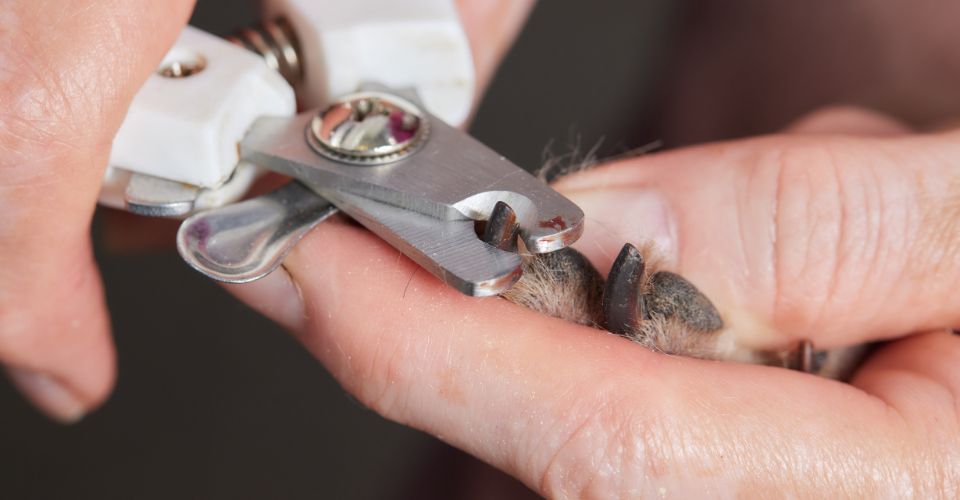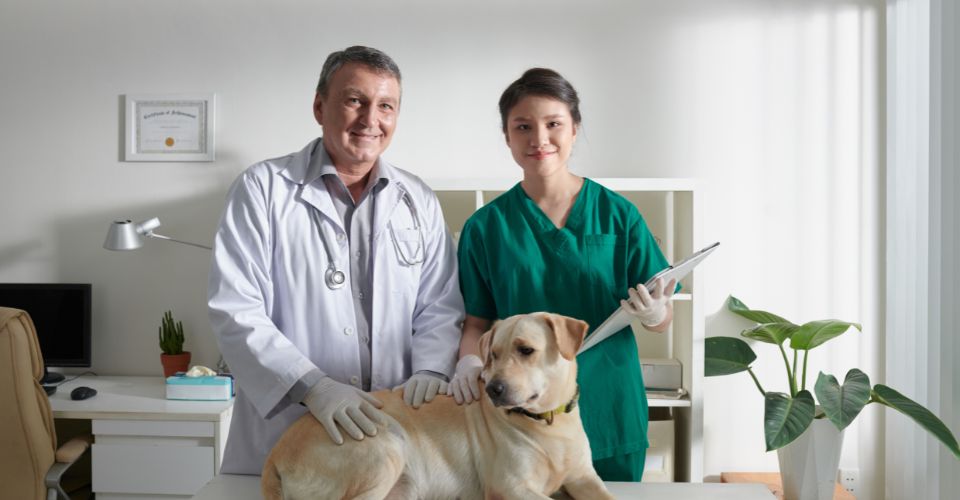Can Dogs Eat Olives?
Yes, dogs can eat olives. However, a few caveats are attached about which type of olive to give them and how much.
There is a variety of olives available in the market, such as green, black, canned olives, green olives stuffed with pimento, olive oil, and so on.
Raw olives are extremely bitter because of oleuropein and phenolic compounds, making them inedible. Therefore, the olive fruit is first submerged into the brine, dry salt, water, or lye treatments to make them palatable. However, this much salt can be dangerous for dogs.
In this article, we’d give you every detail about whether dogs can eat olives. If yes, which type of olives? If not, why not?
Are Olives Good For Dogs?
To reach a fact-based conclusion about this question, we need to find out the nutrient content of one cup of olives (135g).
| Nutrients | Raw Olives | Black Olives | Amount |
| Calories | 196 | 157 | kcal |
| Protein | 1.39 | 1.13 | g |
| Vitamin K | 1.89 | 1.89 | µg |
| Calcium | 70.2 | 119 | mg |
| Sodium | 2.1 | 0.992 | g |
Raw olives contain significant amounts of sodium compared to black olives, making them dangerous for dogs’ stomachs. But that doesn’t make a whole cup of black olives good for dog health. Instead, only one or two olives will be enough for them.
If a dog consumes a moderate amount of olives occasionally, he can reap several benefits, some of which are mentioned below.
a. Support Heart Health
According to American Heart Association, olives are a good source of monounsaturated fats that reduce cholesterol levels and improve heart health.
b. Provide Probiotic Effects
Probiotics are live microbes that provide health benefits when consumed in foods, generally by improving or restoring the gut flora.
To remove bitterness, olives are fermented using the probiotic Lactobacillus acidophilus, which is a kind of gut-friendly bacteria. That’s why probiotic olives are good for dogs having stomach upsets or diarrhea.
c. Boost Brain Health
Olives contain moderate amounts of polyphenols, a natural nutrient known to improve memory by reducing stress in the brain.
A dog consuming olives or olive products can help lower the risk of memory-related diseases such as Alzheimer’s or dementia.
d. Aid in Blood Sugar Control
Olives don’t contain sugar at all. If the sweet candies are replaced by olives, your dog’s sugar level can be maintained.
There are 3.2g of fiber present in 100g of olives. This moderate amount of fiber ensures that dogs’ blood sugar levels do not rise. The high fiber content also helps slow down the release of sugar into the blood, which is good for diabetic dogs.
Olive oil is especially known to control diabetes 2.
e. Combat Cancer-Causing Free Radicals
Olives are a fantastic source of antioxidants, vitamin E, vitamin A, and Oleuropein, which zap the free radicals that cause oxidative damage, thus preventing cancers, inflammation, and other chronic diseases.
f. Pain Relief
Vitamin E in olives helps repair damaged tissue while protecting against future injury in dogs. In addition to easing discomfort, it can also improve blood circulation, maintain healthy skin and eyes, and strengthen the immune system.
g. Control Bleeding
Olives are a good source of Vitamin K.
Vitamin K is a group of vitamins that a dog’s body needs for quick blood clotting in case of injuries and helps wounds heal quickly.
Are Olives Bad For Dogs?
Olives are bad for dogs if consumed in large amounts. Two or three olives are enough to let your dog enjoy this tiny fruit.
The extra salts and calcium of olives can predispose dogs to pancreatitis, kidney and bladder stones, sodium toxicity, tremors, dehydration, and high temperatures.
Can Dogs Eat Green Olives?
Can dogs eat olives? Yes. But can they eat green olives too?
Dogs can’t eat green olives because they are inedible due to their bitterness—give it to your dog, and he will surely run away.
Subsequently, when the bitterness is removed using brine solutions, it elevates the sodium content of olives, which is again, dangerous for dogs.
Can Dogs Eat Black Olives?
Yes, dogs can eat black olives because they have a relatively low salt content. Avoid giving your dog canned olives that are submerged in the salt solution and stuffed with onions or garlic.
Onions and garlic are highly toxic for dogs and can give them extreme stomach sensitivities.
Is Olive Oil Bad For Dogs?
No, olive oil is the best form of olives present in the market. Olive oil contains all the important nutrients, minerals, and vitamins that are present in olives. But thankfully, they are not loaded with sodium, making them a good option for dogs.
Olive oil can give dogs the following benefits,
- Oleocanthal in olive oil improves joints’ health.
- Like olives, olive oil contains polyphenols, potent antioxidants that improve the brain health of dogs.
- It helps prevent heart issues, cancer, and diabetes in dogs. According to Kary Woodruff, a registered dietitian at the Salt Lake Intermountain LiVe Well Center, “extra virgin olive oil is a great source of monounsaturated fatty acid and has shown to help reduce one’s risk for heart disease.”
- The monounsaturated fatty acids, vitamin E, and anti-inflammatory constituents inhibit premature aging by preventing free radical cell oxidation and giving elasticity and firmness to the dog’s skin.
- Anti-inflammatory agents and antioxidants in olive oils improve the immune system in dogs. Additionally, olive oil’s enhanced antibacterial, antiviral, and antimicrobial properties keep dogs safe from parasites like bacteria, fungi, and parasites.
- Olive oil increases energy levels in dogs. According to Lori Zanteson of The Olive Oil Times, “at its most basic, olive oil provides energy.”
For a dog, one teaspoon of olive oil per 20 pounds of body weight per meal is enough and will boost energy and combat lethargy and laziness.
Will Olives Make My Dog Sick?
One or two olives per week won’t make your dog sick, but if consumed in large quantities, it can cause:
- Dehydration
- High blood Pressure
- Vomiting
- Bloating
- Weakness
So the answer to “can dogs eat olives?” is, “yes, dogs can eat olives but only in moderation.”





